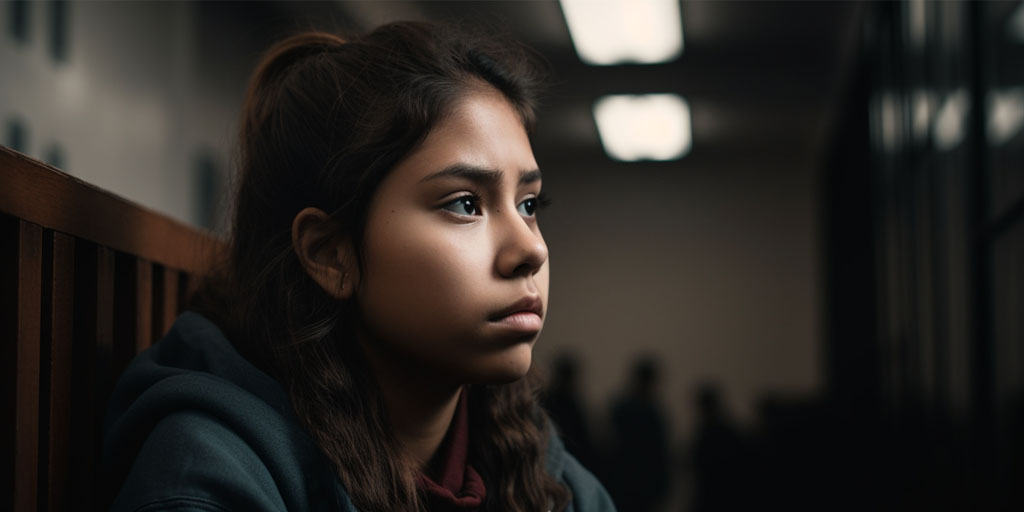
The phone rings. It’s your teen’s school. One of their social media posts made its way to the administration, and they’re not pleased. The principal mentions suspension from extracurriculars — possibly from school.
With the line between offline and online life getting increasingly blurred, an individual's behavior on the internet has the real possibility of generating consequences in other parts of their life. Unfortunately, kids are no exception.
While it’s not the end of the world, situations like this can be serious, and you deserve a helping hand to guide you through. Read on for practical tips on maneuvering this distinctly modern parenting dilemma.
It depends. Some schools have stricter social media policies for students, particularly when they're posting about something on-campus. Generally, schools can punish students for social media posts if the post causes a significant disruption to the learning environment and is connected to the school.
Students have the right to free speech, including political expressions. But most schools draw the line at threatening, defamatory, or substantially disruptive statements. These can be punished by schools to maintain order. Speech that is political, exaggerated, or even vulgar is generally protected, provided it doesn't cross into violence or targeted harassment, or become so disruptive that it impedes the learning process.
Of course, this is your kid — it’s realistic for you to have big feelings about the situation. Honor your emotions and process them with a trusted confidant if needed.
When you’re calm(er), it’s time to go into fact-finding mode. Your first step is to get a complete picture of what happened, the consequences, and your options moving forward.
In addition to the school’s version of what happened, you also need to hear your child’s side of things.
Don’t just take others’ word for it. Look at the post(s) in question and read any comments. If others are involved, look at their profiles. Do they have a history of posting problematic content? Once you have a grasp on what happened, it’s time to come up with a gameplan for what to do about it.
Social media policies can vary widely among school districts, so it’s paramount you consult your school’s policy.
As you read, here are a few things to look for:
Figure out how you feel about the situation and what you would like to see happen. You may decide you’re in total alignment with the school’s handling of the situation. Or you may think they were either too harsh or too lenient. Regardless, finding clarity in your position at the outset will help you address the matter intentionally.
As a parent, it’s tempting to exert your authority (especially when your kid goofs up). But parenting is a long game, and the ultimate goal is to teach your kid how to be a good adult. Long after they’ve flown the nest, they’ll make mistakes they have to deal with. Guiding them through that process while they’re still under your care is a great way to teach them how to clean up their own messes once they’re grown.
Ask your child what they think should be done to fix things. Listen to their ideas with an open mind. Push them to consider the consequences of their actions — both short- and long-term — and to put effort into coming up with solutions. You might be pleasantly surprised by what they share!
You may decide your child’s ideas for how to fix things aren’t appropriate. Or there may be a middle ground that works best. Either way, let them know you value their input and explain how you reached your decision.
You and the school share a goal of creating a safe, healthy environment for students. Keep this in mind, even if you disagree with how they handled this situation. Sit down with school administrators to find a solution that everyone can live with. Advocate for your child if needed, and be prepared to compromise where appropriate. The more you act as a partner with the school, the more likely you are to find a productive resolution.
It’s important to note that your child’s actions online may have repercussions beyond their school life. If your child’s actions online were illegal or showed them engaging in illegal offline activity (such as underage drinking), there may be legal implications.
In some instances, such as nudity or sexual activity, a school’s mandatory reporting obligations may be triggered. Be sure to find out if law enforcement has or will be contacted by the school. If this is the case, you may want to seek legal counsel.
If no illegal activity occurred, but you feel that the school stepped out of bounds in their punishment, there may be recourse. Federal and state courts have issued rulings related to free speech and social media use by students. It’s a complicated and rapidly-shifting issue, and various factors (such as if the school is public or private) come into play. Consulting an expert is your best bet as you seek to understand your options and decide on a course of action. In addition to contacting a lawyer, the ACLU is a great place for information and resources.
After you’ve handled the immediate situation, turn your eye toward preventing something similar from happening again.
Here are some tips for to follow up on your child’s online activity and help prevent problems from happening again:
The online activity of teens and preteens can cause potentially serious consequences for their offline life, including at school. Being proactive goes a long way toward preventing your child from getting in trouble for what they post. If your child does get in hot water for ill-advised activity on the internet, it’s important to handle the situation deliberately to minimize the impact and set your child on the right path going forward.